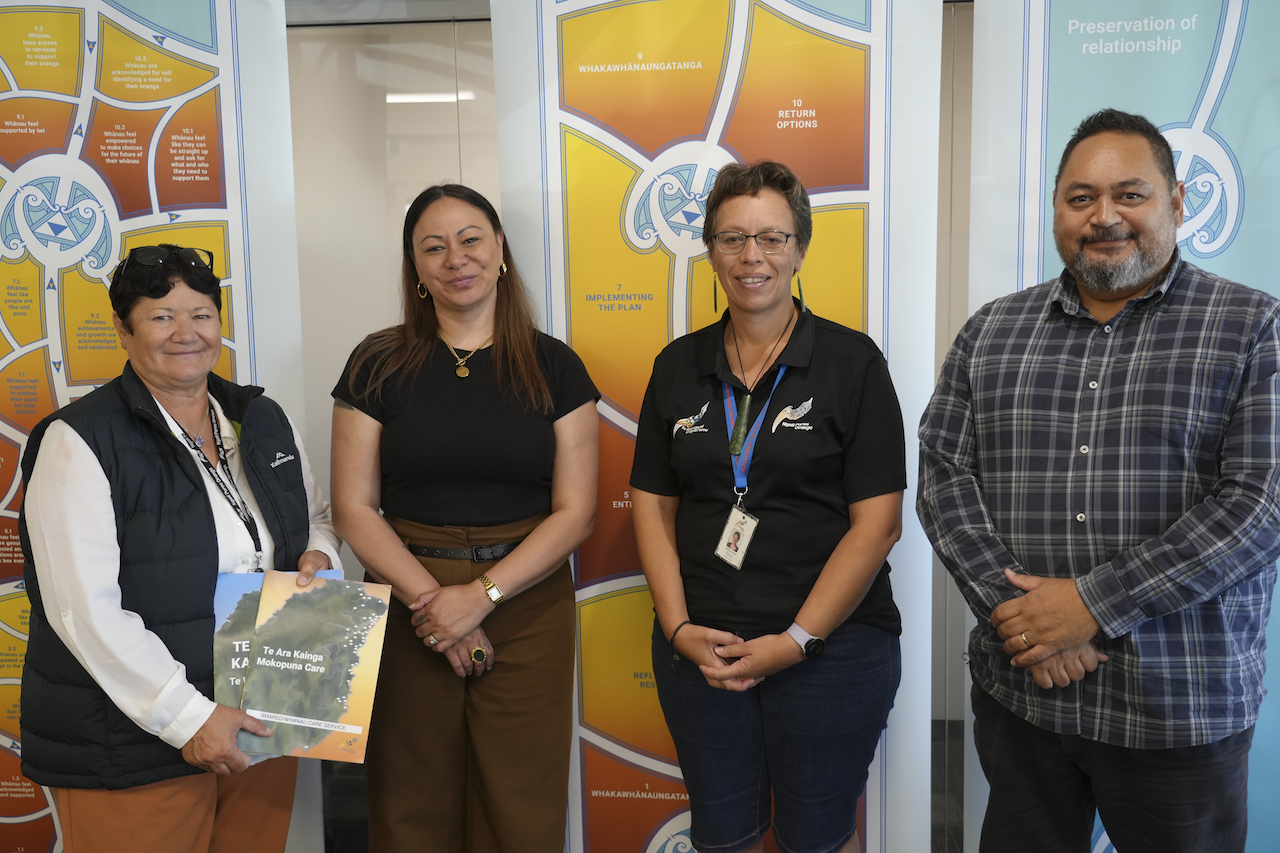Call Us

Kia ora,
he uritenei no Ngati Porou me Ngati Uepohatu.
I tipuake au ki tea kau o ko Te Puia.
I am a child of Te Tairawhiti, and I really loved growing up here.
From your perspective, what does impactful and culturallygrounded genomics research look like?
Well, genetics research, this is going beyond it. The genomics research is taking one gene and understanding it in the context of others. And I think that whakaaro sets up researchers well for working with our communities. And in terms of being impactful, you must be culturally grounded first. So, to do that, in my eyes, you must be really understanding of those whakaaro of Kanohi kitea as well as understanding what it is and how to invest in mana Motuhake.
So that's again going beyond just knowing us, going beyond understanding who we are and it's going and showing up in the communities in so many ways that it is felt by the people as well as investing in our own health autonomy and helping us build that capacity up.
How has that shown up in your work?
For me and my journey through genetics and genomics research, that's been a lot of going back to my whānau and back to my whenua as well and leaning into the mātauranga that's already there, that's not captured by these universities by these databases and strengthening my own mātauranga and building these frameworks that allow me to enter this space of both mātauranga that's locked within our genetics and our genomes as well as these pākehā spaces and understanding how to communicate that effectively and keep our mātauranga that's locked within us safe.
This umbrella idea that Ngāti Porou are great protectors, just like our Hikurangi is, just like our Waiapu protects our many hapū huri rauna i te Tairāwhiti, that's how my journey through genomics medicine has been like.
What is your Whakaaro on the potential benefits of genomic medicine in Ngati Porou?
Well, the idea of medicine isn't just Western in terms of where it's come from, it's also talking about who it's come from. So thatwhakapapa pākehā that a lot of our medicine comes from doesn't capture the entire whakapapa of our whānau Ngāti Porou, Uepohatu , te mea, te mea.
I see it as a real opportunity for these researchers to be able to support our whānau's hauora aspirations by looking into the whakapapa take take of the people, of the individual, and then speaking to the whānau themselves to understand their context and how they've grown as a person. And when the patient and the team, the clinicians, the doctors, the researchers come together, they can provide all these opportunities to achieve the ultimate state of hauora that the person is wanting.


-2.png)